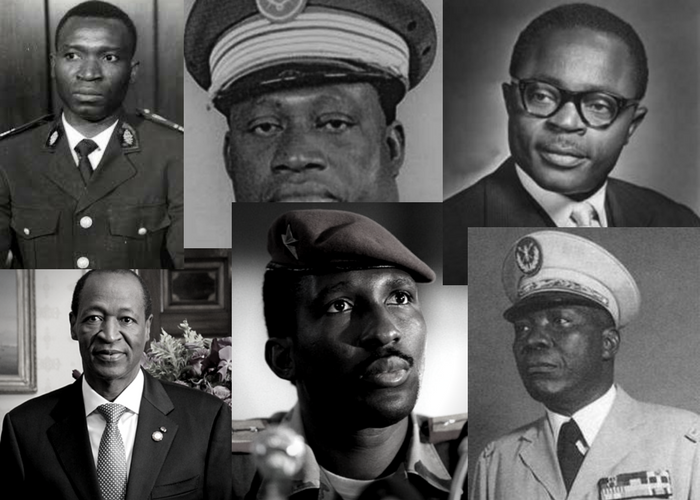The area now known as Burkina Faso was colonized by the French in the 1890s. In 1932, the French colonial administration divided the colony between Soudan (present day Mali), Niger and Ivory Coast. When the French tried to join the colonies again in 1947, they faced resistance from movements such as the African Democratic Assembly (RDA) and the Voltic Union (UDV). After the death of Ouezzin Coulibaly in 1958, his successor Maurice Yameogo unified the two parties. As a unified party, they won 64 out of the 75 available seats in elections held in April 1959. When Upper Volta (present day Burkina Faso) became independent he became its first post-colonial President.
In 1965, Yameogo declared he had won reelection with 99% of the vote. However, there was clear discontent among the masses and in particular among the army, students and labor unions. They accused Yameogo of being too dependent on France, being autocratic and having ineffective economic policies. Lieutenant Colonel Sangoule Lamizana led an uprising in January 1966 which forced Yameogo out. Yameogo was imprisoned for misappropriating about £1 million.
From 1966 to 1976, the cabinet that had been installed by the military was unable to rule effectively. Elections were held in 1978 and RDA/UDV won a majority of the legislative seats and Lamizana won the Presidential election a year later. However, he did not rule very long after that. In November 1980, Colonel Saye Zerbo took control over government. Barely a year later, that government was deposed by young noncommissioned officers of the military.
The government was initially led by an army doctor called Jean Baptiste Ouedraogo by Thomas Sankara took over in 1983. Under Thomas Sankara, the country switched from a pro-Western to a nonaligned position. He changed the country’s name from Upper Volta to Burkina Faso which means the land of incorruptible men. He released many political prisoners and focused on civic improvement. He also tried to curb the power of the unions. However, his chief lieutenant, Captain Blaise Campaore ordered his unit to assassinate him and took control of government. Campaore immediately introduced a policy of “rectification”, overturning the Marxist policies pursued by Sankara and introduced a new constitution in 1991. He won elections in 1991, 1998, 2005, and 2010 in what were considered unfair circumstances. His attempt to amend the constitution to extend his 27-year term caused the 2014 Burkinabé uprising. On 31 October 2014, Compaoré resigned, whereupon he fled to the Ivory Coast. Roch Marc Christian Kaboré became President of Burkina Faso in 2015.





One response to “Brief History of Burkina Faso Leadership (1947-2018)”
With so much turmoil how can there be progress? Compaore really ruined Burkina. What a tyrannt, what a barbarian what a loser.